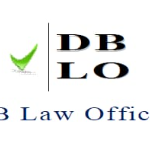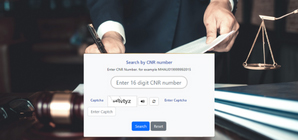The MSME Advantage
Posted On : June 28, 2021

Table of Contents
The MSME Act goes a long way in ensuring liquidity
India faces a big problem when it comes to ‘honouring’ or enforcement of the contracts. Businesses suffer a lot in view off their inability to recover their outstanding payments. This problem has been existing for years; even as per the World Bank’s report released for 2020 vis-à-vis ‘honouring of business contracts’, India continues to rank at 163. In a scenario like that, the greatest sufferers are the MSMEs for they usually operate with limited resources and liquidity, and bad- debts may result in ultimate closure of those businesses. From macro- economic point of view the impact could be significant, if MSMEs are enabled, in view of their ability to generate employment; a problem which otherwise the country is facing over the last couple of years. And MSMEs are one of the proven solutions to that problem. And it is not just in India, but worldwide too. One may notice the stress lent to MSMEs by world leaders like Barack Obama, Hillary Clinton, and Sarah Palin in their addresses.
In India, law has some solutions to offer. The MSME Development Act, 2006, that was enacted for the growth and development of micro small and medium enterprises in the country; brought in various benefits in the form of either reduced rates of lending, better chances in tender procurement, tax benefits, etc. for MSMEs. That’s one aspect, a commercial one. The other, addresses the problem of bad- debts or delayed payments. As noticed above, India faces problem of honouring of contracts. The MSMEs thus ought to position themselves on a legally sound platform as litigations are bound to occur. One of the tacts is to register itself under the Act; and this article covers some of the legal points (minus the commercials, etc.) which the Act has to offer to those registering.
So firstly, apart from the commercial benefits, like tax reliefs and procurement benefits, an MSME can ease the litigation process for itself, as this law provides for a compulsory Arbitration and Conciliation process via a separate council formed under it. The relevant provision, ie. Section 18 of the Act enables the MSMEs to launch a legal action via Arbitration where it's dues stand unpaid for over a period of 45 days. A great leverage! Additionally, the receiver of the goods or service (ie. the buyer to an MSME) is mandated to pay up the outstanding payments with interest at a rate which is thrice the rates published by the RBI.
On the other hand, w.e.f. 22nd January, 2019, companies procuring supplies from MSMEs are required to disclose their outstandings to such vendors; a failure to do so attracts penalty under Section 405, The Companies Act, 2013. This is crucial, not just from a regulatory or evidence point of view in a legal proceeding, but also from the limitation point of view; as it is now well settled, by the Hon’ble Supreme Court of India, that disclosures appropriately made in financial statements or with the ROC may amount to an acknowledgement, thus providing an MSME with an extension to initiate legal process.
The above two points are good enough to fasten up the recoveries for an MSME, and manage liquidity. Experience suggests that a large number of bankruptcies occur due to cash- flow problems. And MSMEs depend largely upon their billed receivables. The MSME Act and the corresponding mandate introduced under Section 405 (supra) can help an MSME to ensure sufficient cash-flow and liquidity and hence avoid possible bankruptcy/ insolvency. Over here, it may be apt to say that, may God forbid, if at all a bankruptcy like situation emerges, even then an MSME under the Insolvency & Bankruptcy Code (IBC) has an edge (due to the newly introduced Section 29A) over other Companies. That will however be a topic for another article.
























